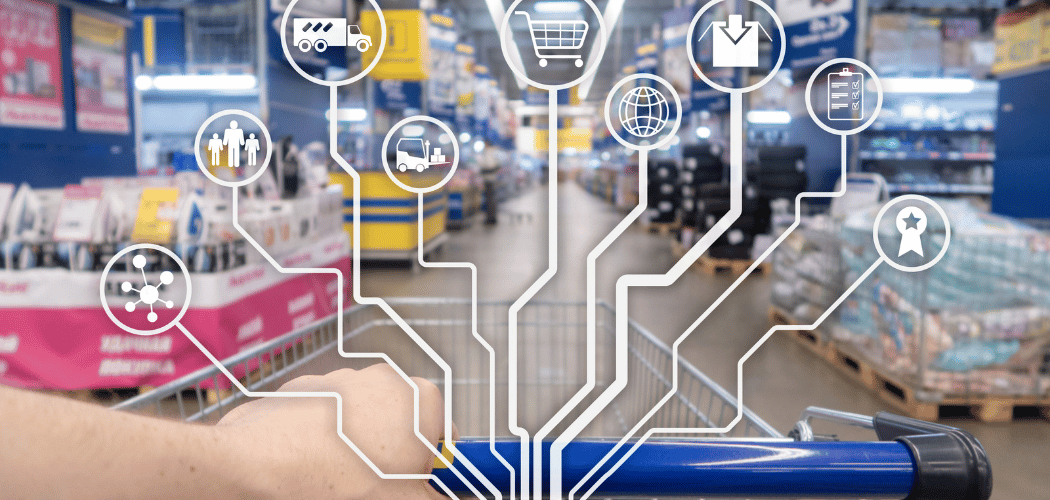An Interview with Jean-Matthieu Schertzer, Chief AI Officer, Eagle Eye Group
AI's transformative potential is dominating headlines. Even McKinsey recently said that AI could contribute $22.1 trillion to the global economy. So, it’s no surprise that AI solutions are an inescapable talking point in retail and will remain so in 2024. Attention is turning toward how retailers of every size can incorporate generative and predictive AI into their operations to deliver efficiencies and reimagine the retail customer experience. AI may eventually impact every facet of the retail business. Still, at this point, executives, loyalty professionals, and retail marketers are grappling with how to leverage it to meet their business goals.

TWM sat down with Jean-Matthieu Schertzer, the Eagle Eye Group's Chief AI Officer, to discuss AI’s impact on retail marketing and some insights from his new eBook, AI & the Current State of Retail Marketing.
The Wise Marketer (TWM): Before discussing your AI guide for retail marketers, can you tell TWM readers how you became Chief AI Officer? Did you imagine such a position existed when you started your career?
Jean-Matthieu Schertzer (JMS): People forget that AI isn’t a new term and that the concept has a very open definition. "AI” dates back to the 1950s and Alan Turing’s discussion of intelligent machines. Then, hardware and research improved, leading to major changes in the whole AI field, starting within the research community. Did you know that deep neural networks took off, mainly after “AlexNet” (an AI model) won an image detection challenge in 2012? The point is that no one can tell which technology and improvements will prevail and become reality.
In the commercial realm, companies will focus on AI aspects that allow them to offer new experiences, leverage their assets (including, importantly, their data), and optimize their costs. Achieving these goals requires expertise, management, and accountability, hence the need for dedicated corporate AI positions.
As to how I arrived in this position, I became Chief AI Officer at Untie Nots, a Paris-based SaaS company focused on personalization and gamification in retail, just as the company became part of the Eagle Eye Group. That was preceded by a career steeped in machine learning and data science, including roles as a research engineer, data scientist, and data science consultant. Each has contributed to my experience in the field and put me in an ideal position to assess how AI is being applied AI in the retail industry.
TWM: I found it interesting that your introduction in AI & the Current State of Retail Marketing cited that traditional marketing is still alive and well. As someone at the forefront of AI development for the industry, why did you feel this was important to include?
JMS: The fundamentals of retail marketing haven’t changed, and they’re as crucial as ever. Innovations are built on top of what came before but rarely eliminate the foundation. The telephone emerged from improving the telegraph, cellular technology made the phone mobile, and smartphones combined telephony and computing. But the purpose of the phone—to communicate and connect—is still the same.
Our research has found the same to be true about retail: 53% of shoppers will buy an item they’ve seen in-store online. And while 95% of Generation Z like to shop online, 97% said they still like going to the mall. The same goes for personalization. Personalization isn’t a new concept; 71% of consumers expect it. The only difference today is the way we deliver.
So, traditional principles still apply to modern applications. If anything, the real issue is how to blend both as part of an omnichannel engagement strategy.
TWM: The observation regarding ‘confusion and delirium’ around AI applications in business and society was a great way to describe the current landscape. What do you have for marketing and loyalty professionals who are feeling overwhelmed?
JMS: Eighty percent of retailers are expected to adopt AI within the next three years. But do retail marketers really know what they hope to achieve from the investment? AI integration has massive transformative potential to revolutionize the customer experience, which can result in increased ROI, but technology for the sake of technology has never been the way to go.
AI's true power in retail comes from leveraging what retailers already know: their data and customer insights. Instead of chasing the latest tech, focus on using these assets to enhance customer experiences and drive ROI. Simplify your approach by building on the strong foundation of knowledge you have about your customers, making technology work smarter for you, not harder.
TWM: What are the most critical factors to consider when evaluating these different AI-driven models and program enhancements?
JMS: While we’re very excited about AI’s role in retail, part of it is still an early-stage innovation. There will be iterations and evolutions that we can’t anticipate, so retailers shouldn’t lock into any preconceptions. It’s also critical to remember that any AI model or enhancement will still rely on sufficient high-quality data at this stage.
As we mentioned in our eBook, AI & the Current State of Retail Marketing, just 5% of companies fully utilize the data available to them. Implementing an AI model’s outputs requires a strategy for making the most of them, which may involve adapting existing tools or maintaining some manual oversight.
Manual oversight is still vital for driving a virtuous AI circle, where humans continually evaluate outputs and use those results to optimize and iterate. The cost of AI implementation is significant, but this investment generates far more value in the long run than the initial cost.
TWM: What are some of the best examples of generative and predictive AI use in retail marketing today?
JMS: The French supermarket chain Carrefour is an excellent example of AI in action. At Untie Nots, we worked with them to create Carrefour’s Challenges experience. This tiered program creates custom thresholds and goals for its MyClub loyalty program members based on various factors, including shoppers’ purchase history. AI allows the Challenges program to dynamically tailor each shopper's thresholds and goals.
The UK supermarket chain ASDA has taken a similar approach with its ASDA Rewards app, relying on AI-influenced gamification to drive shopper engagement. Crucially, the retailer has put savings front and center with its “Pounds, Not Points” initiative, where loyalty program members can build “pots” of cash instead of earning traditional points. It’s become the UK's third most popular supermarket loyalty program in less than two years.
And these are only two examples. Starbucks and Loblaws in Canada are also worth mentioning. What they all have in common is advanced personalization, delivering value with relevant offers, and engagement powered by a combination of generative and predictive AI.
TWM: We’re undoubtedly in the early stages of understanding how AI will shape the future of marketing, customer experience, and loyalty capabilities. Do you have any predictions regarding what we might see next?
JMS: Although we’ve laid the groundwork, it’s time now to focus on implementing and integrating AI into existing retail operations. This will include rethinking current workflows and processes, acquiring stakeholder buy-in, and training teams to harness AI’s full potential properly.
Part of my role as Chief AI Officer and Untie Nots joining the Eagle Eye Group was creating EagleAI to power next-generation retail strategies. This customer-centric data science solution uses AI to support retailers in optimizing promotional spending and better meeting the needs of individual customers. Key to it was automating and enabling authentic one-to-one engagement to drive loyalty.
I expect AI to eventually help retailers utilize more of the data generated through customer interactions across all digital and physical touchpoints closer to real-time. This will ultimately allow retailers to tailor relevant offers and products to each shopper as an individual, near real-time, and at scale.
About the Author
Jean-Matthieu Schertzer, Chief AI Officer for Eagle Eye
Jean-Matthieu is the Eagle Eye Group’s first Chief AI Officer, bringing his pioneering, forward-thinking AI expertise to retail solutions. As an Ecole Polytechnique alumnus, he has embraced various roles throughout his career, including research engineer and R&D data scientist. He is currently leading the overall AI strategy for the Eagle Eye Group, designing, developing, and implementing AI technologies for retail brands worldwide.




